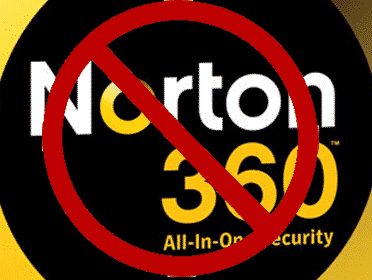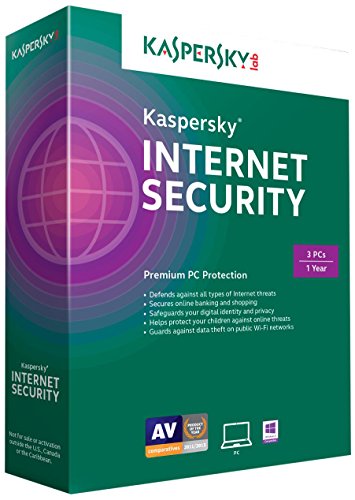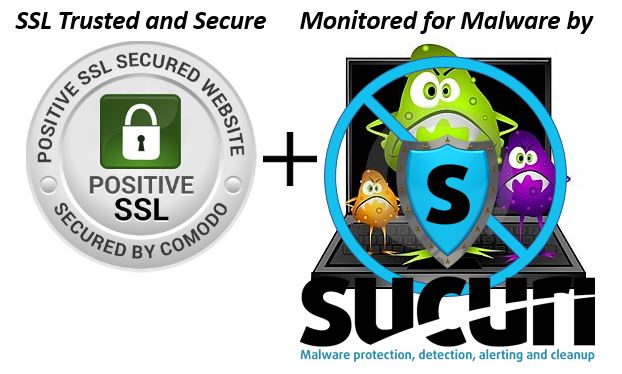[wpob id=”1″]
[Updated 2/9/2016]
Quick Summary: realizing this is a long article, for those not interested in the details, after years of using Norton (Symantec) products, I’ve moved away from Norton 360 and over to two other Internet Security products for my home and work computers: Bitdefender Internet Security and Kaspersky Internet Security.
I mention two programs here because I do like both, and for testing purposes, have installed Bitdefender on 3 of my computers and Kaspersky on 2 others.
You can CLICK HERE to visit my Amazon Store and see the latest Kaspersky and Bitdefender pricing.
Finally, not to ignore FREE Anti-virus programs, I also have AVG FREE AntiVirus and Bitdefender AntiVirus Free Edition on two other computers. I’ve used AVG Free for a number of years without problems, and for the past year, Bitdefender Free, also with good results.
HOWEVER, I do have some good Internet safety info in the article… so perhaps you should continue reading!!!
 This past year, Symantec (the makers of Norton products) quietly released two new Internet security programs (Norton Security and Norton Security with Backup) and at that same time, “ended the life” of it’s two mainstream security products, Norton 360 and Norton Internet Security.
This past year, Symantec (the makers of Norton products) quietly released two new Internet security programs (Norton Security and Norton Security with Backup) and at that same time, “ended the life” of it’s two mainstream security products, Norton 360 and Norton Internet Security.
What’s really strange about all this is how “quietly” it happened. No big announcements, not even a news story… nothing.
Then, in early October of 2015, Symantec announced that it was breaking up the company into two separate companies, one focused on security and the other on information management. (CLICK HERE to read their news release on the breakup).
And to make matters even MORE mysterious, especially for “consumers” who use their Norton products, if you visited the Symantec web site it was actually difficult to find information about the Norton products! It actually took me a couple minutes of clicking on links to finally find the Norton page showing their new Norton Security Standard, Deluxe, and Premium (that includes backup).
What Symantec had done is create a a new web site just for the Norton products (www.norton.com)… further separating the Norton brand from the name Symantec.
Wow… this was really interesting!!!
So what was going on?
My Own History with Norton Products
I’ve personally used Norton Anti-Virus products off and on since the late 1980’s (yes, that’s 80’s), even before Symantec took Norton over from the guy who started it all, Peter Norton (who I actually got to meet at a California programming conference).
I say “off and on” because about 15 years ago, in the late 1990’s after seeing it slow my computers down, I dropped Norton Anti-Virus and switched to other protection solutions for a few years, while Symantec re-tooled Norton and then re-released it as a brand new, top-rated security solution in the early 2000’s.
I picked it back up in about 2004, and had been using it ever since.
And as I originally wrote this in early November, 2014, all the computers in my household were using Norton 360, and I was pretty happy with how the product was working.
But then, as I’ve already mentioned, the big change came with the dropping of Norton 360, the Symantec company changing it’s focus, and the release of the new Norton Security products.
It was for all these reasons that I decided to re-evaluate the Internet Security options and make a personal change.
Now, if you are still a Norton 360 user, before you panic, please read on…
Norton 360 will keep working
 First of all, if you are a user of Norton 360 or another Symantec product, you are still protected and there’s no need to panic.
First of all, if you are a user of Norton 360 or another Symantec product, you are still protected and there’s no need to panic.
“End of Life” for Norton 360 means that Symantec will no longer be selling the product, or updating the core program components. But what they WILL still continue doing is releasing new “virus definition updates” for Norton 360… at least as long as you pay for the yearly subscription.
So your Norton 360 program is NOT going to stop working.
However, when your virus definition subscription runs out, you’ll still have to renew it with Symantec if you want to continue using Norton 360.
And should you do that? Hmm… read on….
Should I Continue Using Norton 360?
As I just said, Norton 360 will keep working as long as the definitions are updated, and at least for now (as of February, 2016), Symantec continues to offer yearly subscription renewals for Norton 360.
 But what should you do come renewal time? Should you pay the renewal fee and keep using Norton 360?
But what should you do come renewal time? Should you pay the renewal fee and keep using Norton 360?
Honestly, I don’t think you should.
First, renewing subscriptions directly with Symantec (versus just purchasing a new version at the local store when it goes on sale) is pricey.
Although it’s almost impossible to check what the Norton 360 renewal subscription price is without having Norton 360 on your computer, I checked the subscription renewal prices before I uninstalled Norton 360 last year, and here is what I found…
- Norton 360 Premier Edition – 2 year renewal for up to 3 PC’s – $154.99
- Norton 360 Premier Edition – 1 year renewal for up to 3 PC’s – $79.99
Those prices may now be lower (in 2016), but even so, considering that I can purchase an entirely new Internet security product from someone else for as little as $29.00, that’s a lot of money for one year of just getting definition updates!
Second, no longer getting updated “core components” bothers me, especially since protection technology is always improving as new security threats appear.
So again, in my humble opinion… it might be time for you to move on to something else when your subscription is up.
That’s what I’m going to do.
Should I get the new Norton product?
 In 2015, when the “first versions” of the new “Norton Security” products were released, most of the reviews on the product were less than stellar. After being on top of the “Top Anti-Virus” lists for many years, Norton products suddenly dropped down to where many other products, including Kaspersky and Bitdefender, were far above them.
In 2015, when the “first versions” of the new “Norton Security” products were released, most of the reviews on the product were less than stellar. After being on top of the “Top Anti-Virus” lists for many years, Norton products suddenly dropped down to where many other products, including Kaspersky and Bitdefender, were far above them.
Then with the release of Norton Security Standard, Deluxe, and Premium for 2016, the reviews are starting to get better. And as I update this article in February of 2016, PC Advisor in the UK has even put it at the top of their list (although many other sites still have them pretty low).
But when all is said and done, I’m still not personally convinced that it’s time to return to Norton.
It’s really bothers me that Symantec seems to really be de-emphasizing it’s commercial products, and changing it’s focus from consumer products to the business and enterprise world.
[NOTE: One example of how Symantec seems to be moving away from directly working with consumers like you and I is the case where local vendors (who will go nameless) are “partnering” with Symantec to offer security solutions using Symantec Endpoint Protection (CLICK HERE to read about the product on Symantec.com).]
Yes, I’ve reviewed all the documentation about the products on the Norton site (you can CLICK HERE to read about Norton Security yourself), but it just doesn’t tell me enough.
So again, in my honest opinion, I do not play on returning to Norton and for now, give the same advice to all my computer students.
Then What Should I Do? (Part One: Review of Staying Safe)

- Make sure you have a good Anti-Virus / Anti-Malware program on your computer and that you keep the definitions up-to-date
- Make sure you have your Windows Firewall turned on
- Do NOT click on links in “phishing” emails (those that look like they are from a financial institution)
- Do NOT click on Internet pop-up windows that say “Your PC needs to be scanned” or “Let us fix your PC”.
- Do NOT answer phone calls from companies claiming your computer needs fixing.
- Make sure you do regular backups of your important files and folders (the things you create)
- Always create “secure” passwords for your important online accounts
- Don’t send “private” information through email or post it on Facebook
Ok, those are the biggies I always relate to my students.
Oh, and if you’d like to learn more… CLICK HERE to check out a book I wrote and use in my classroom, and that can be purchased online. It’s called Staying Safe on the Internet, and I keep it constantly updated.
Then What Should I Do? (Part Two: My “due diligence” and conclusion)
Now, back to an alternative to Norton.
 To be honest with you, one problem I’ve always had with many of the Norton products is that they almost tried to do TOO MUCH! Not only did they cover the first two points I made in the previous section about staying safe (Anti-Virus / Anti-Malware / Firewall), but it also performed lots of computer maintenance stuff that really had nothing to do with Internet security.
To be honest with you, one problem I’ve always had with many of the Norton products is that they almost tried to do TOO MUCH! Not only did they cover the first two points I made in the previous section about staying safe (Anti-Virus / Anti-Malware / Firewall), but it also performed lots of computer maintenance stuff that really had nothing to do with Internet security.
The maintenance was nice, but honestly, I have other programs that do that same thing, and do them better (I use a free program, Glary Utilities for all my computer upkeep).
So, in looking for a new product, I personally decided to focus JUST on an Internet Security product, and not the “kitchen sink”.
I started with a scan of my favorite tech sites, and the yearly reviews they do on Internet security products.
For example, one I visited was PC Magazine (PC Magazine – The Best Antivirus Utilities for 2016 – CLICK HERE to read it), but I also made the rounds to PC World, CNet, and other sites I trust for good technology news.
And then after looking through the current reviews, took a handful of the programs that rated toward the top of lists, and individually check out their sites and “Googled” them to see what others were saying.
And two particular programs caught my eye.
But let me digress one more time….
Back in the early 2000’s, I worked as a freelance writer for PC Today, SmartComputing, and Maximum PC magazines (all of which are published by Sandhills Publishing in Lincoln, NE). Over a four year span I wrote about 30 articles on all kinds of technology topics, including a couple on Anti-Virus and Internet Security programs.

I didn’t give Kaspersky my top review that year because frankly, way back then the company was just becoming known in the Anti-Virus world, and their interface was really cumbersome to use. But, when all was said and done, I took a fancy to the program, and even installed it for a year on one of my computers.
But now back to modern times….
As I looked through the reviews for this year, I saw again that Kasperskys programs had high ratings, and in looking through their site and materials, was impressed by what they offered (CLICK HERE to visit Kaspersky.com), and how much nicer and easier to use their program interface was.
But along with Kasperskys, I also noticed that Bitdifender had worked its way up many of the “top” lists, and since they had a free version, I gave it a try on one of my computers for a few months. Then, being impressed with what I directly saw, I went ahead and purchased the pay-for version and now have it installed on three machines. (CLICK HERE to visit Bitdefender.com)
Some Final Thoughts and Suggestions

- For both Kaspersky and Bitdefender I’m going with the “Internet Security/Deluxe” versions of the programs instead of just the “AntiVirus” versions.A lot of companies offer different levels of products with different sets of “features”. The only ones I’m really interested in are (1) Anti-Virus (2) Anti-Malware (3) Firewall (4) Web site monitoring. What I’m NOT interested in is a “backup solution” or extra “pc clean-up utilities”. Both of those features I can get from other programs that do a better job.
- As I shop for a program, I start at the company site and check the regular retail price. For example, as I write this, Kaspersky has Internet Security on sale for $39.95 (3 PCs for 1 year, regular price $79.95). But then I head over to Amazon and check prices. In the case of Kaspersky, right now I can get it for $29.99 (3 PCs for 1 year).CLICK HERE to visit my DiscoverSkills Amazon store to see the latest Kaspersky prices.
- Instead of renewing my Internet Security program subscription every year (which is WAY too expensive for my tastes), my favorite thing to do is shop for a brand new, full copy of the program. And the best time to do that is on Black Friday (the Friday after Thanksgiving). Then, I just leave it on the shelf until my regular subscription runs out, uninstall the old one, and install the new copy.
And don’t forget… if you’d rather not pay at all, there are free Anti-Virus programs you can download. One I often suggest to my students is AVG Free Anti-Virus (CLICK HERE to visit their site, free.avg.com). It only gives you Anti-Virus and Anti-Malware protection, but along with your Windows Firewall, should provide enough security for most basic Internet users.
I’m also a fan of Bitdefender Antivirus Free Edition (CLICK HERE to visit their site, www.bitdefender.com/solutions/free.html). It’s a decent antivirus program with a small footprint that doesn’t seem to slow my computers down.
Whew…. well I really rambled on a lot here. Hopefully, I’ve answered some of your questions about Norton 360, and maybe a few others about Internet Security in general.
As always, I would love to hear your comments about the subject. You can leave them below!!!









You can buy it and leave it on the shelf until needed and then the subscription starts when installed?
Hi Ron…
Yes. Most AV and Internet Security types of programs don’t officially activate until you install them, and use the installation date (versus the purchase date) as the start of your one-year subscription. So what I normally do is look for sales during “good sales” times of year, and then just shelve the program until I need it.
Thanks for the message!
John Lortz
John,
I have been using Norton 360 for a number of years purely on the fact that you liked it and were using it. The other part of the 360 software that needs replacement, you mentioned “Glary utilities.” Sometime you might want to discuss the pros and cons of other utility programs. I truly appreciate what you do. Thanks
Hi Jim…
Thanks for leaving the message. Although I do know of and have used a handful of “utility-types” of programs over the years, Glary Utilities has pretty much replaced all those, since it’s all in one place, easy to use, and works. But you bring up a good topic (comparing Glary to the others) that I’ll add to my “future blog” list.
Thanks again!
John Lortz
Wish I would have read this a month ago. I had trouble getting Norton 360 to download. It told me there was nothing there to download so I went to the store
and bought one at 79.95. (It went on sale the next week of course.) When I went to put the new one in I bought at the store it said I had 369 days coverage already so talk about a screwup. I tried to take it back to the store but the security had been broken and they would not take it back. I learned another lesson there. Never believe the first thing they tell you on the internet. Look again.
Hi Marge…
Thanks for posting the message. Sorry I was late in getting this article out, leading you to go ahead and re-subscribe to Norton 360.
But although you paid a bit more, the good news is you are covered for another 369 days. And eventhough Norton 360 is no longer my choice program, it will still do a good job of keeping you safe for the next year. So you’ll be fine in continuing to use it. Then, next year, you can make the move to something else.
BTW, on one of my computers Norton 360 won’t expire for another 200 days… and so I’ll still be running into next year myself!!!
Thanks again…
John Lortz
Thanks,John for your indepth article on anti virus. I’m now getting ready to head to my computer to study the various sites you recommend. I always look forward to your updates! Jackie Foote
Hi Jackie…
Thanks for the message and for the kind words. Glad you found the information helpful! Be sure to let me know if you run into anything interesting in your site visits!!!
Take care…
John Lortz
I have had Kaspersky’s for about 3 years and have had no issues. Money well spent. The one I bought enabled me to put it on both my desktop and my laptop.
Hi Yolanda…
Thanks for posting the message… and for passing along your experience with Kaspersky. It’s always good to hear comments and experiences with programs that might be new to others. That’s what comment sections like this are for!
Take care…
John Lortz
Nice post – thanks.
Interestingly, I’m in a similar position as you, having been using Norton products since before ‘the slow down’ and subsequently (though more recently I run their corporate sibling Symantec Endpoint Protection on my machines as I find it far less intrusive). As you point out, 360 tries to do too much, so I’ve always used and recommended (I support around 200 clients) Internet Security instead.
Following Norton’s re-branding, splitting and general unsettling changes, I too have been hunting for an alternative and after doing the same due diligence as you, came upon the same conclusion. Currently have around 10% of my clients running Kaspersky, which, other than the odd hiccough here and there (which I used to see with NIS anyway) seems to be pretty good.
Lets hope we’re not back here again in another few years…
Amazon page for Kaspersky Internet Security 2015 indicates that a newer version is available (2016, for roughly five dollars more). There aren’t many reviews for the new version, but many of them show that the new product is problematic, at best. It’s making some people swear off Kaspersky for good. What say you?
Hi Fred…
Thanks for the post. I’m in the camp that hasn’t yet seen much about Kaspersky 2016, so I’ll have to wait and see what the testing labs say before I make judgement. The 2015 version has been working well for most of the folks who I know got it this year (including two of my machines). But as you certainly know, from year to year companies can sometimes drastically change their core scanning engines which can certainly cause problems (or sometimes improvements).
But thanks for bringing this to our attention here.
John Lortz
Thanks for the response, and for this well thought out and detailed page.
My Norton 360 expires this month. I found this page while looking for alternatives, after I had learned that it’s discontinued. It was itself an alternative to Zone Alarm when that expired a year ago and the automatic re-up charged me much more than what new users were paying at the time!! Fortunately they didn’t argue about giving me a refund, but it soured me on their way of doing business. I’ve decided to go with Kaspersky because of this page. Hopefully, I can get more than a year out of it. Thanks again.
John, thanks for your careful comparison of Norton 360 and Kaspersky et al… Like you, I’ve been using Norton 360 for some time… and at the same time, looking at other yearly virus/malware comparisons. As I have about 23 days left on my 360 I’m doing the research again. Even before reading your article I was leaning towards Kaspersky as it seems to regularly get high marks for virus and other malware. I also run Malwarebytes (probably an unnecessary duplication??) as well as their Anti-Exploit Premium program. They don’t seem to interfere, but do they really fill in “some blanks” that Kaspersky might miss or just a duplication as I said up above? Just wondering.
Anyway, again thanks for your thoughts on Kaspersky.
NathanielA in Oceanside, CA
Hi Nathaniel…
Thanks for the post! Glad that you found the article and found it useful… and good to hear of someone else in the same situation as I was.
I wanted to mention that I also run Malwarebytes (I use the free, scan-only version) in addition to my virus protection. In some regards, I do think it’s a duplication of effort, but from my own observations, it seems that most anti-virus programs DO take care of the bad malware, but not so much the “riff-raff” malware (adware, really) that lands on your machine. Malwarebytes does seem to take care of this stuff.
And again, since it’s free and doesn’t interfere with anything else, why not use it?
Anyway, thanks again for posting…
John Lortz
I too have been using Norton 360 for a few years as it did the job well as far as I am concerned and like you I always purchased a new version at the store as it is always cheaper than the renewal. My license will expire at the end of March and if you were wondering about the price, here is part of the notice from Norton, “Your subscription for one year of protection is CAD 129.99”. That is roughly twice what I usually pay at the store!
I too will be looking at a new softare this year!
As being in the Alte Phartz class, I’ve been with Symantec/Norton for many years. Renewal came up. OK. Next, my CC wasn’t honored..Strange. Then OK. Renewed fo 2 yrs. Next, msg from Norton. You’re covered. Next. They noted problems. Need to fix. Okay. Hmmm. In the past, they just fixed and let me know. Next, computer in other hands for 71/2 hrs. Now introduced to two new names: Jinigram LLC. Then Dial2Buy. Now, I’ve been dinged for total of $809!
Many naughty words. Will writing M. Brown do any good. Feeling scammed and stupid. Jim.
I’m trying to renew my anti-virus program and got lost – please help
Hi there…
With most anti-virus programs, if you open the program, and you’re close to the renewal date, they will immediately pop-up something to warn you of that fact, and then provide a “link” you can click to renew.
So perhaps try going to your Start Menu, and scrolling down to look for the Norton icon and start the program (you can also go to your Taskbar Tray, down by the date/time, and click the Norton icon there, if you see it).
One other note… this time of year, Anti-virus programs go on sale all over the place. Often, just purchasing a brand-new copy is less expensive than renewing. You might want to consider doing that.
John Lortz
Have you changed your opinion since this was written? I’ve been a Norton 360 person for some years and recently the interface between windows 10 and the software don’t seem to sync and I have to manually do the update for definitions. So looking to change.
Well written article. Been doing “tech” since it was called data processing in ’69
Hi there…
Thanks for the post. To be honest, Norton (Symantec) made somewhat of a “comeback” this past year as they released newer security products to get back into the home-user market.
But, as an outside observer, it seems their biggest push is toward the commercial world and offering their “endpoint” product via tech retailers who sell it as a service.
Anyway, my personal opinion is that there are better alternatives out there versus Norton. Right now in my home, we use both Bitdefender and Kaspersky (on different computers) as well as the free version of AVG (my son’s computer) and the free version of malwarebytes. All have worked well for us.
Thanks for the post. Would love to hear what you end up doing!
John Lortz